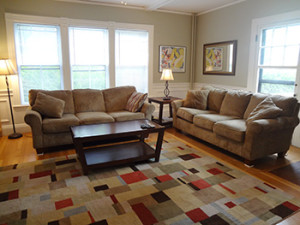Residential Drug Rehab Programs

Residential drug rehab programs help you focus on your treatment with no distractions.
Residential drug rehab programs offer around-the-clock monitoring and care for those who need treatment for a drug or alcohol addiction. These programs provide housing, monitoring, medications, counseling, therapy, meals and every facet of treatment a patient could possibly need in one facility where the patient will reside for the duration of the treatment program. These programs are typically reserved for patients who suffer from extreme addictions or for those who have already tried an outpatient program and have not been successful at their recovery process.
Benefits of Residential Drug Rehab
There are many benefits to seeking the professional help of a residential drug rehab program. The most profound benefit is that these programs provide patients with around-the-clock monitoring and care in a controlled environment where there are absolutely no drugs or alcohol to be abused. These programs typically range from a period of 30 days to one year and with that time the patient is able to really take control of their addiction and heal both physically and psychologically from trauma or other negative effects that the addiction has had on their lives. Patients in residential drug rehab typically stay for at least 90 days in order to ensure the greatest possible chance of them making a full and complete recovery.
In addition to the housing and monitoring that is provided at residential drug rehab programs there are also some beneficial qualities that can be found in the treatments that are offered at these facilities. Most residential drug rehab programs incorporate a series of counseling and therapy sessions into the overall treatment regimen to assist the patient in coping with any mental or psychological aspects that surround their addiction. This could include co-occuring disorders such as anxiety, depression or fear.
Treatments at Residential Drug Rehab
There are many different types of treatment provided at residential drug rehab programs but in most cases the common form of treatment is counseling to assist in the psychological recovery for the patient. Counseling is provided in the form of individual one-on-one sessions with a counselor as well as group sessions during which the patient interacts with other members of the group. Additionally, many residential drug rehab programs also provide spa services, exercise programs, meals and nutritional guidance, acupuncture, yoga and meditation, medications and various other types of treatment to assist in the overall recovery process.
If you or someone you love is addicted to drugs and needs help, consider the great benefits that come with seeking the help of a qualified residential drug rehab program.